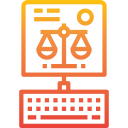Digital Rights: What are the social and human rights implications of internet shutdowns
In 2016, Uganda experienced the first ever internet outage in history. The government of Uganda ordered a temporary shutdown of social media and mobile money that left communication platforms like facebook, twitter, and others inaccessible by users. The outage coincided with the presidential elections and according to UCC was carried out on orders of Uganda’s electoral commission that sighted security reasons as the reason behind the directive.
Internet shutdowns have occurred elsewhere in other countries like DR Congo, Ethiopia, India, Turkey, Algeria, Iraq and others. Among these countries listed, India heads the list as the country with the most cases of internet shutdowns. The country recorded over 100 incidents of internet shutdowns in 2018 making it the lead in numbers of internet shutdowns in the whole world. In some countries like Ethopia, Algeria, Iraq, and Somalia, internet as been shutdown to prevent exam leakages and cheating.
So what exactly are internet shutdowns and how do they impact human rights?
Internet shutdowns refer to restrictions placed on the use of any internet services usually due to an order by the government of a country. The shutdowns can occur in three different forms i.e. partial shutdown, total shutdown or bandwidth throttling.
Partial shutdown occurs when access to certain websites is restricted. This form is mostly applied to social media platforms to stop or limit conversations on these platforms. This form of internet shut down was experienced in Uganda in 2016 during the presidential elections in February. The government claimed the reason behind this directive was to limit the spread of rumors and misinformation that might incite violence and the need to prevent any illegal declaration of election results.
Another form of internet shut down is the “throttling strategy” where internet service providers lower the quality of network signals and internet speeds which makes the internet too slow and limits its usage. The most common example of bandwidth throttling occurs when internet service providers limit the usage of the internet after a certain threshold like a monthly limit has been reached.
The other form of internet shutdown is the total shutdown. This happens when all the access to the internet is revoked. Zimbabwe is one of the countries where a total internet shutdown was implemented amidst violent protests against the rising fuel prices in 2019. This shutdown is reported to have cost the Zimbabwean government millions of dollars through delayed revenue inflows due to the slow processing of imports and exports after the switching off internet services countrywide.
According to the African Centre for Media Excellence, Internet shutdowns cost countries up to millions of dollars for each day the internet remains down. Another report by Deloitte estimates that a country with average connectivity stands at a risk of losing at least 1.9 percent its daily GDP for each day with the internet off.
According to TheUgandan.com; a Ugandan based news website, the 2016 Internet shutdown cost Ugandans a total of 7.5 trillion shillings. Relying on the cost of shut down tool by the Internet Society and NetBlocks reveals that Uganda loses upto $1,787,547 (approximately UGX6,608,533,015) for each day the internet is shut. CIPESA’s report on the same subject reveals that internet shutdowns have cost sub-Saharan Africa a total amount of $237 million since 2015 with Ethiopia contributing the most to this figure ($132million) making it the country with the highest documented loss in Africa. But internet shutdown does not affect only the economic aspects, it impacts both the social aspects and human rights as well.
People often use the internet to voice their opinions which allows individuals to exercise their right to freedom of expression. Any impediment to this implies a violation of people’s freedom of expression. The public today relies on the internet to keep in touch with friends and family, report information, access, and share knowledge, hold institutions accountable, communicate with their leaders and government, etc. which makes any limitation to Internet access difficult to distinguish from a limitation to exercising one’s freedom of expression and opinion.
Internet shutdowns may also hinder democracy and politics by preventing political parties from engaging with their support base. This obstructs the free flow of information and hence paralyzes communication. Without a free flow of information between the government and its people, government decisions and actions are not open to public scrutiny which in turn allows the government to evade accountability and diminishes participatory processes between a state and its people. Without accountability and transparency, democracy is impossible. In Uganda, the 2016 internet shutdown was conceived as a way to limit spreading of false election results but this could have easily been considered as an attempt to weaken the opposition which some might consider a violation to people’s rights.
In the legal perspective, any form of restriction to internet access that doesn’t conform to the legislative or judicial requirements may be deemed a direct violation of human rights to freedom of expression, freedom of association and freedom of peaceful assembly, and the right to access information. Indirectly, internet shutdowns deemed a violation of the rights to free and fair elections, education, healthcare, equality, trade, and rights to enjoy the benefit of scientific progress such as technology.
As time goes by, Africa becomes increasingly reliant on the internet thanks to the smartphones and other internet-enabled devices that get more and more affordable. In addition to this, internet costs in countries like Uganda have reduced by more than 70 percent over the last three years making the internet more affordable. With time more services will become dependant on the internet and any form of internet shutdown will be limiting people’s ability to access services. Most governments consider shutting down the internet as a solution for reducing violence but the shutdowns don’t really reduce violence. They instead promote more protests and result in campaigns against the act such as the popular #KeepItOn campaign that is creating greater awareness and pushing back against internet shutdowns.
